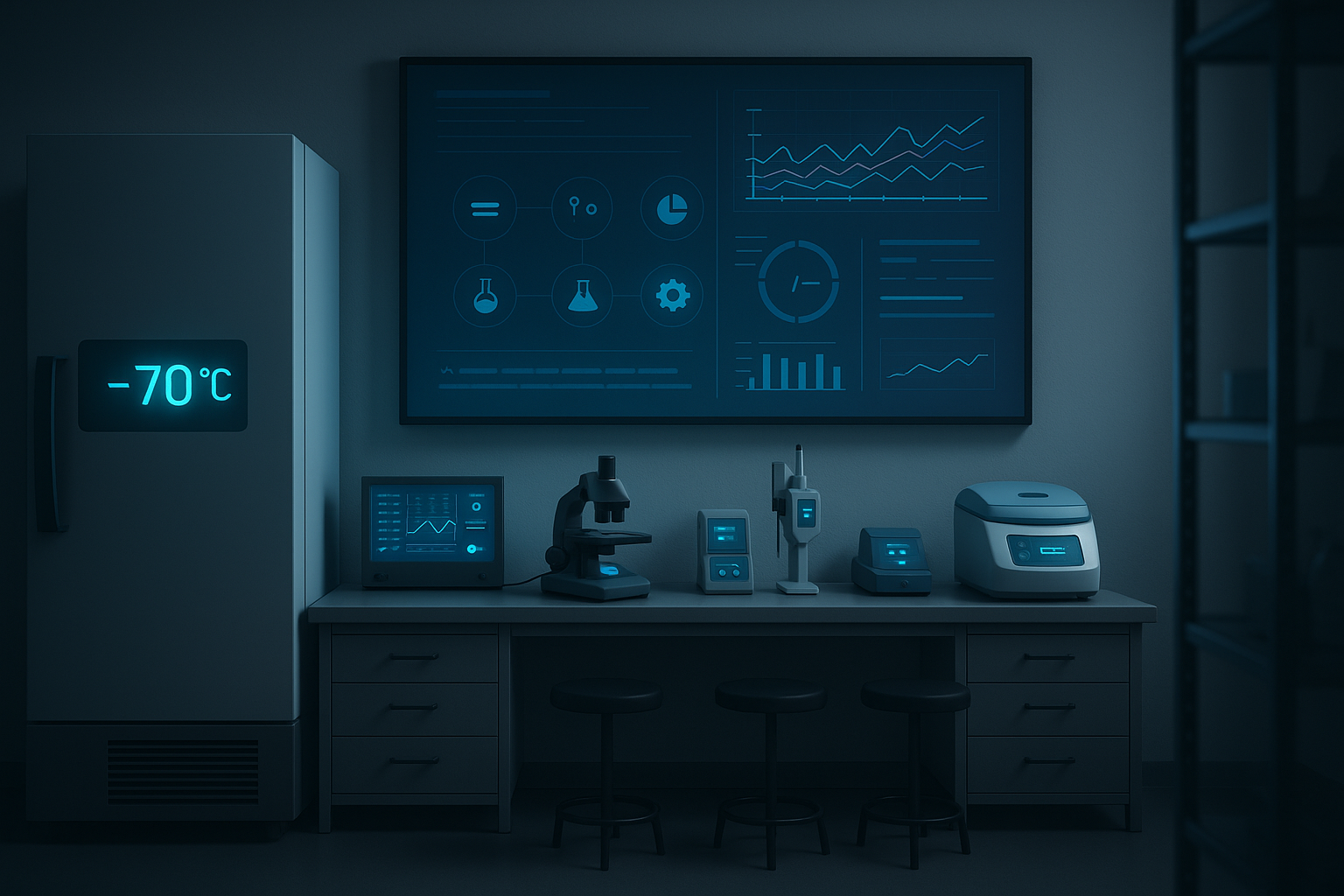The Smart Lab Revolution That's Happening Right Under Your Nose
The Smart Lab Revolution That's Happening Right Under Your Nose

Real smart labs use technology to eliminate waste before it happens
Smart labs aren't what you think they are.
Connected equipment. IoT sensors. Automated monitoring systems. Real-time data streaming to dashboards.
That's just fancy equipment.
Real smart labs use technology to eliminate waste before it happens.
Challenging the Defaults
Look at that -70°C reading on your freezer display. Most labs set everything to -80°C and forget about it.
Smart labs ask a different question: what actually needs ultra-low temperatures?
The Engine (built by MIT) discovered 40% of their samples worked fine at -70°C. That 10-degree change cut energy consumption in half per unit.
But here's the part that matters: the monitoring system told them which samples could handle the change. No guesswork. No risk to research.
Data-Driven Decisions
Smart sensors track what actually matters:
- Usage patterns across equipment
- Idle time and underutilization
- Which protocols actually require maximum settings
- Where energy gets wasted
The technology isn't there to impress visitors. It's there to make better decisions.
The Efficiency Gains
When The Engine implemented smart monitoring:
Temperature optimization: 50% energy reduction on freezers running at -70°C instead of -80°C
Equipment scheduling: 40% better utilization by identifying idle periods
Preventive maintenance: 30% reduction in emergency repairs through predictive monitoring
Right-sizing: Eliminated redundant equipment based on actual usage data
You Already Have More Data Than You Realize
Your lab probably has more data than you think:
- Equipment logs tracking every cycle
- Usage histories showing patterns
- Energy consumption records
- Maintenance schedules and failure rates
The question isn't whether you have data. It's whether you're using it.
Start Simple
You don't need a complete overhaul:
Audit current systems. What does your equipment already track?
Question default settings. Does everything really need to run at maximum?
Track usage patterns. Which equipment sits idle? When?
Use the data. Challenge assumptions you didn't know you had.
The Real Smart Lab Insight
The smartest thing about smart labs isn't the technology.
It's using data to challenge assumptions.
Why is that freezer at -80°C? "Because it always has been."
Why runs overnight? "Because we might need it."
Why do we have three of these? "Just in case."
Smart monitoring turns vague answers into concrete data. And concrete data drives better decisions.
Beyond Energy Efficiency
Smart labs optimize more than energy:
Research quality: Consistent monitoring prevents equipment drift
Cost management: Usage data informs purchasing decisions
Sustainability: Lower energy = lower carbon footprint
Productivity: Automated monitoring frees researchers for actual research
.jpg)

